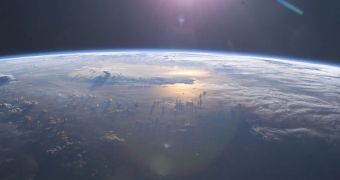University of Copenhagen scientists, led by Gary Shaffer, attempted to answer the very serious question raised by increased global pollution – what will become of the planet in the long run? In an attempt to provide the best answer, the team used the most up-to-date computer models to predict changes in our planet's ability to process oxygen, the basic element that allows for the existence of life on Earth. They looked at the absorption and emission rate of the dangerous greenhouse gas carbon dioxide, and also introduced variables like the estimated population growth over the next century.
But their study was further-reaching than this. They ran the simulation to cover a time span of more than 100,000 years, in order to notice the effects that human activities have on the environment. According to their results, most affected will be the world's oceans. In order to avoid any type of suspicions about their experiment, the researchers used two scenarios, elaborated by the Intergovernmental Panel on Climate Change (IPCC).
The worst-case scenario argues that human beings will burn approximately three fourths of the planet's fossil fuel reserves over the coming century, resulting in a 40 percent drop in ocean oxygen levels, with disastrous consequences for our own food supply. Aside from the total annihilation of coral reefs and the birds that live near them, the model also showed that massive stretches of water would become uninhabitable for fish, and that most of those zones would stand on top of current spawning grounds.
The mid-range scenario envisions that only a quarter of the reserves will be processed into energy. This second option is no better than the first, the results show, because it also means that the oceanic dead zones – areas in which there is insufficient oxygen for fish to survive – could expand by a factor of three or four. This can be previewed in existing areas in the eastern Pacific and the northern Indian Ocean, where the situation is already catastrophic.
The catch about the two scenarios is that they both operate on the assumption that, following the processing of either of the two quantities of fossil fuel, the burning of coal, natural gas and oil will stop. In reality, there is a very slim chance of that happening. More likely, the extraction operations will multiply, in order to accommodate an ever-increasing population.

 14 DAY TRIAL //
14 DAY TRIAL //